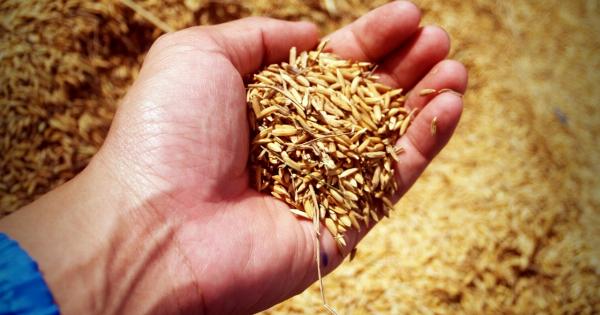When it comes to oral health, most people focus on their brushing and flossing habits. While these practices are crucial for maintaining healthy teeth and gums, another aspect often overlooked is the role that diet plays in oral hygiene.
What we eat can significantly impact our dental health, and one group of foods that can help protect our teeth are whole grains. These nutrient-dense foods offer a myriad of benefits for our overall health, including their ability to promote good oral health.
In this article, we will explore how whole grains can aid in protecting your teeth and why you should consider incorporating them into your diet.
The Nutritional Powerhouse: Whole Grains
Whole grains are an essential part of a balanced diet and are known for their high nutritional value. Unlike refined grains, such as white flour or white rice, whole grains retain the grain’s entire kernel, including the bran, germ, and endosperm.
This preservation process ensures that all the essential nutrients present in the grain remain intact.
Whole grains are rich in various essential nutrients, including fiber, vitamins, minerals, and antioxidants. These nutrients not only contribute to overall wellness but also promote dental health in several ways.
Reducing the Risk of Gum Disease
Gum disease, also known as periodontal disease, is a prevalent oral health issue that affects many individuals worldwide. It is caused by bacteria that accumulate in the plaque, irritating the gums and potentially leading to inflammation and infection.
If left untreated, gum disease can progress and cause tooth loss.
Whole grains can play a crucial role in reducing the risk of gum disease. Their high fiber content requires more chewing, which helps stimulate saliva production.
Saliva acts as a natural defense mechanism, neutralizing acids and washing away food particles and bacteria from the mouth.
Furthermore, the vitamins and minerals present in whole grains, such as vitamin E, magnesium, and zinc, help strengthen the gums and support their overall health.
By incorporating whole grains into your diet, you can fortify your gums and lower the risk of gum disease.
Protecting Enamel through Nutrient Delivery
Enamel is the hard outer layer of your teeth that provides protection against decay and sensitivity. When enamel starts to erode, it can lead to cavities and other dental problems.
Ensuring the health of your enamel is crucial for maintaining strong, healthy teeth.
Whole grains contain a variety of nutrients that contribute to the maintenance and protection of your enamel.
For example, phosphorus, a mineral found abundantly in whole grains, works in conjunction with calcium and vitamin D to enhance the strength of your teeth.
Moreover, the phosphorus found in whole grains facilitates the remineralization process, where essential minerals are reabsorbed into the enamel layer, reversing early stages of tooth decay and preventing further damage.
Aiding in Saliva Production
Saliva plays a crucial role in maintaining oral health. Aside from its role in neutralizing acids and washing away bacteria, saliva helps in the remineralization process and assists in the digestion of food.
Without proper saliva production, the risk of tooth decay and gum disease significantly increases.
Whole grains provide a natural aid in saliva production. Their high fiber content requires more chewing, thereby stimulating the salivary glands and increasing saliva flow.
Increased saliva production helps in maintaining a healthy balance within the mouth and facilitates the optimal functioning of other oral defense mechanisms.
Preventing Cavities
Cavities are one of the most common dental problems and can have a significant impact on oral health. They occur when bacteria in the mouth produce acid, leading to the demineralization of the tooth’s surface.
Over time, this demineralization can result in the formation of a cavity.
Whole grains can aid in preventing cavities due to their unique properties. One of the primary benefits is their high fiber content. Foods rich in fiber require more chewing, which produces more saliva and helps cleanse the mouth.
Furthermore, whole grains are low in processed sugars. Refined grains, on the other hand, often contain added sugars that contribute to tooth decay.
By choosing whole grains over refined grains, you can significantly reduce your sugar intake and decrease the risk of cavities.
Promoting Overall Dental Health
While the focus of this article is on how whole grains help protect your teeth, it is important to note that the benefits extend to overall dental health as well.
By incorporating whole grains into your diet, you are nourishing your body with the necessary nutrients to maintain healthy teeth and gums.
Additionally, the high fiber content in whole grains promotes digestion and overall gut health. Studies have shown a correlation between gut health and oral health, emphasizing the importance of a balanced diet in maintaining optimal wellness.
Conclusion
When it comes to oral health, our diet plays a vital role in maintaining healthy teeth and gums. Whole grains, rich in fiber, vitamins, minerals, and antioxidants, offer numerous benefits for our dental health.
By incorporating whole grains into your diet, you can help reduce the risk of gum disease, protect your enamel, aid in saliva production, prevent cavities, and promote overall dental health.
So, next time you plan your meals, don’t forget to include wholesome and nutritious whole grains.































